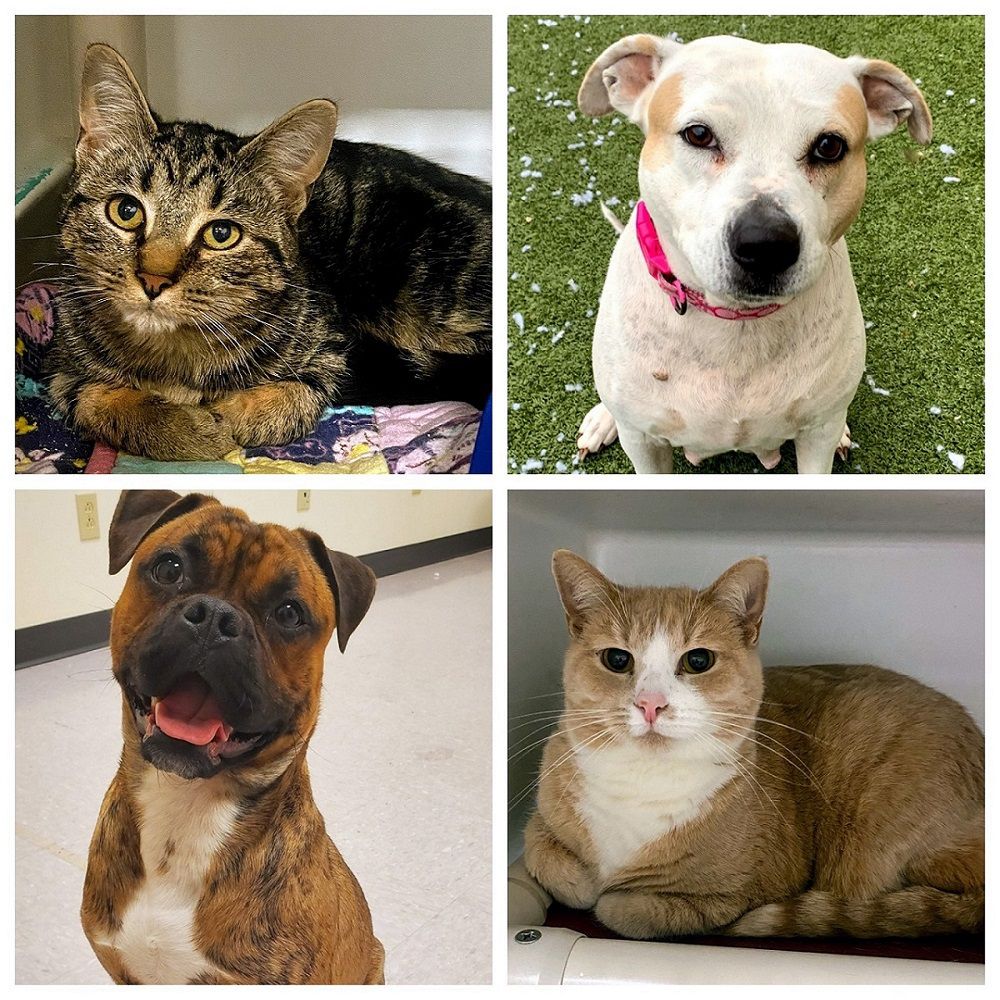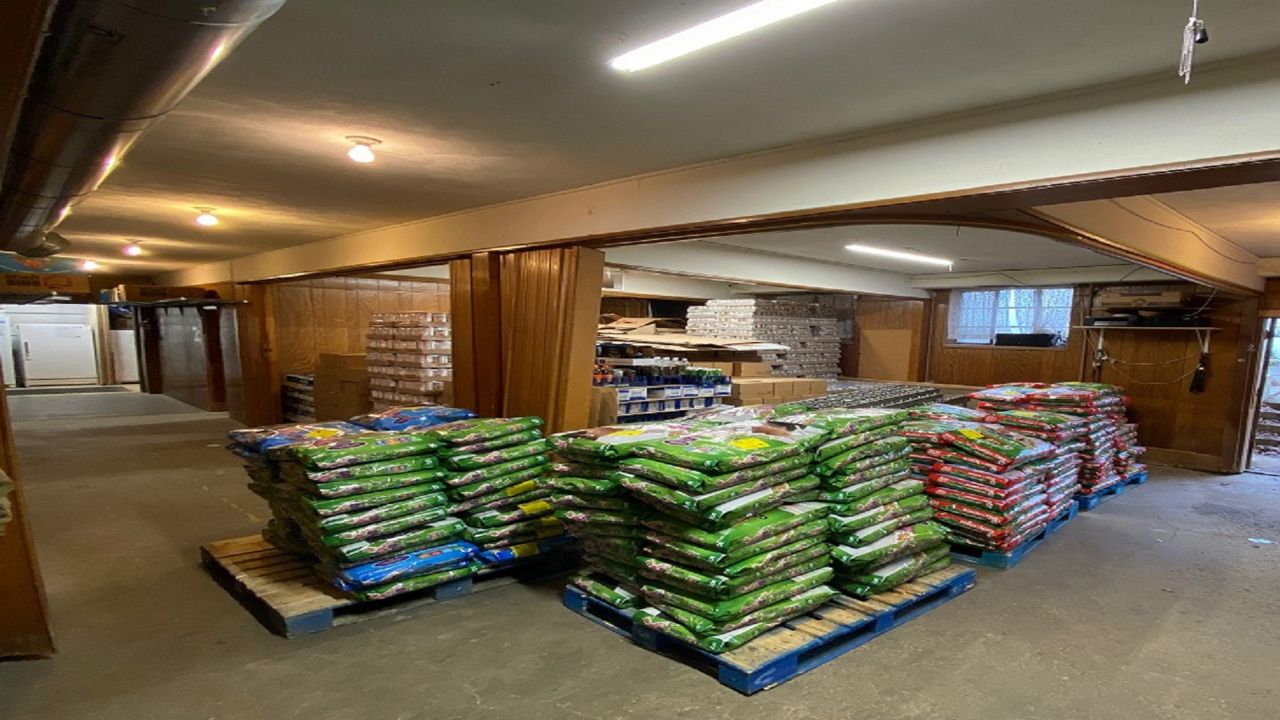TWINSBURG, Ohio — The Humane Society of Summit County doesn't believe families struggling to put food on the table should also have to worry about feeding their pets, which is one reason why it recently distributed 25,000 pounds of pet food to 16 regional shelters and food banks to help families struggling with the fallout from the pandemic.
What You Need To Know
- The pet food was made possible by a CARES Act grant through Summit County and Akron Community Foundation, while Two Men and a Truck donated delivery service
- The pet food is available at 16 area food pantries and is expected to help 1,600 families and 3,000 pets
- Calls to the humane society asking for pet food and from people wishing to surrender animals are increasing
“We were blown away by the need,” said Humane Society Director of Operations Kristin Branagan.
When faced with a food shortage, she said many pet owners would go hungry to ensure their pets get to eat.
“I think a lot of the food banks, because they never had that supply, didn’t realize the need was so great as well,” Branagan said. “It just kind of shows us that we need to do better in supplying dog and cat food to the community and we're looking at ways on how we can do that.”

The pet food was made possible by a CARES Act grant distributed through Summit County and Akron Community Foundation. Two Men and a Truck donated the delivery service to get food to the pantries.
Among the agencies receiving pet food is Open M, an Akron nonprofit that provides food, health, and employment services.
“We hope to provide a source of nourishment to all members of the family, human and animal alike, so that no one must go hungry to keep their pet fed,” marketing coordinator Rachel Milliron said in a news release.
The Sanctuary Food Pantry in Kenmore is also distributing pet food, which Rev. John Klapp, Sanctuary pastor, said is the most requested item at the food pantry.
“This will draw more people than turkeys for Thanksgiving,” Klapp said in the release.
The humane society expects the program to provide a one-month supply of food to about 1,600 families and 3,000 pets.
Early in the pandemic, the community stepped up to help the humane society at a time when its staffing level was uncertain because of COVID-19, Branagan said.
The shelter was able to empty its kennels, placing cats and dogs that otherwise stay in cages into the care of people working from home.
“We saw the community open up their homes and hearts through adoption and fostering,” she said. “So we decided to really expand our fostering program like we never had before, and we got great support from the community.”
Right now, the humane society cares for about 80 cats, with about half that number in foster care, and about 50 dogs, of which about 10 are in foster homes, Branagan said.
The foster program has worked so well, the humane society will expand it, she said, and training and support are offered to anyone who wishes to open their home to fostering.
“It was something we really never experienced before and we realized how well this works,” she said. “So it's going to be a new thing that will carry on after the pandemic is over. We learned a lot of really cool things.”
Awareness of the many benefits pets have on physical and emotional health seems to be growing, Branagan said. Especially in a year when people are facing so many stressors – families need their pets to be well now more than ever.
The People-Animal Connection (PAC) at UCLA Health has been researching the impact animals have on health since 1994.
PAC researchers found that the simple act of petting an animal promotes the release of hormones like serotonin, which elevates mood, lowers anxiety, and helps people relax.
Physically, petting an animal lowers blood pressure and improves cardiovascular health. Researchers say it also releases the hormone phenylethylamine, which has the same effect as chocolate.
The shelter has received an increase in calls requesting pet food and from people wishing to surrender their animals, the humane society said.
But its mission is to rescue animals that are victims of cruelty or sick and injured stray animals — it doesn’t take in animals surrendered by owners or healthy stray animals, the agency said.
Residents in need of pet food should reach out to their local food pantry. Food pantries that want to participate in the food distribution may call 234-212-9749.
To donate to the humane society, visit its website.



